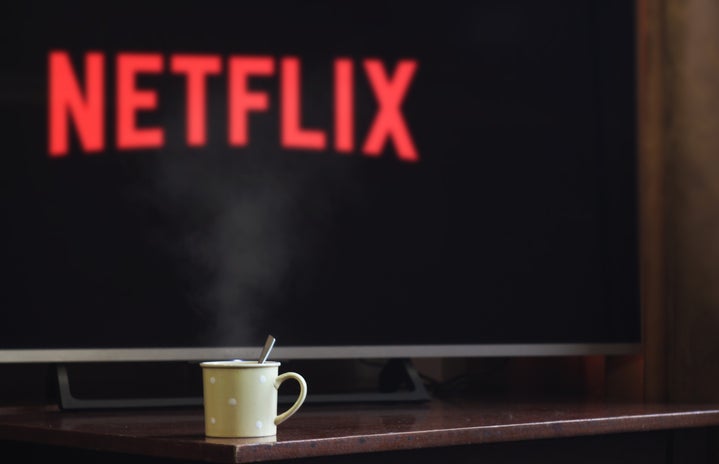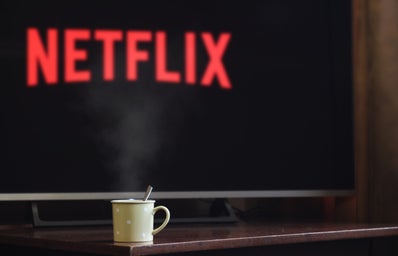We’ve all been guilty of being interested in famous true crime stories, like Jon Benet Ramsey or Ted Bundy, and got a little too invested with a case. I, myself, have found myself down a rabbit hole of the world of true crime. Content creators on YouTube have taken up true crime, making a range of videos like makeup and murder, or mukbangs and murder. There’s an array of true crime podcasts available on all music and book platforms. Even our streaming services have documentaries about many famous murder stories, like ‘The Act’ (about Gypsy-Rose Blanchard) and ‘Monster’ (about Jeffrey Dahmer). I’ve been indecisive lately about whether or not the true crime fandom is overstepping. So, let’s look at all of it.
On YouTube, popular true crime content creators are being called out for profiting off and possibly exploiting these stories of gruesome murders. For example, creators Bailey Sarian and Stephanie Soo are gaining negative attention for the ethics of their videos. Sarian has her “murder, mystery, makeup, Mondays,” while Stephanie Soo does mukbangs while describing a case or conspiracy theory. Both of these creators are being called into question, as many feel that the way these stories are delivered takes away from true horrors of the crimes. This argument calls morals into the question, as many feel stories should not be watered down for entertainment purposes. In Sarian and Soo’s videos, it should also be noted that resources for the victims and their families are not provided.
Podcasts dedicated to true crime have been called into question as well. The titles of some of these podcasts are concerning too. For example, ‘My Favorite Murder’ or ‘Murder with My Husband’ already sound diminishing of the truly horrible events we know they talk about. Lots of these podcasts sell merchandise that’s inspired by the real cases they discuss. Obviously, they profit off of this. On music platforms, the more streams you get, the more money you make as well.
Documentaries on streaming services like Netflix and Hulu are receiving a lot of hate from the public after releasing some of their true crime movies, shows, and documentaries. Following the release of ‘Monster: The Jeffrey Dahmer Story,’ the families of Dahmer’s real victims quickly came forward to state that Netflix had never asked for permission to portray the victim’s stories, and they did not donate any money to the foundations set up for said victims. Netflix was accused of being money-hungry and greedy by exploiting the victims and their stories without any permission. Another popular example of this is ‘The Act’ on the streaming platform Hulu. ‘The Act’ is a series about the infamous Gypsy-Rose Blanchard case. Blanchard, who was recently released from prison, stated in an interview how the popular series negatively affected her life in prison, and how she refuses to watch it since Hulu did not ask for permission or compensate her for the series. Blanchard, a victim of Munchausen by Proxy, had said the series was inaccurate and overdramatized.
While true crime is very interesting, I have to wonder at what point do we draw the line and say it’s too much. Have we been thinking at all about how this can be hurtful to people even to this day? Does the true crime fandom exploit victims and profit off their stories? Personally, since I’ve begun thinking about this, I’ve definitely felt less inclined to watch a true crime video on YouTube, but I don’t think it needs to be completely cut out. Finding content creators who advocate for the victims by encouraging donations, asking for permission, and choosing to deliver it in an honest and respectful way. That way, you can feed your true crime addiction while supporting those who fell victim to terrible tragedies.
Brnjac, C., & Krusemeyer, L. (2020, October 4). Why true crime needs to stop treating trauma as entertainment. Capilano Courier. http://www.capilanocourier.com/2020/10/01/the-exploitative-nature-of-true-crime/
The Catalyst. (2023, January 22). The ethics behind True Crime Youtubers. https://thecatalystnews.com/2022/05/05/the-ethics-behind-true-crime-youtubers/
Haasch, P. (n.d.). Gypsy Rose Blanchard blames “the Act” for blowing up her spot in prison and says she wasn’t consulted or paid for the show. Business Insider. https://www.businessinsider.com/gypsy-rose-blanchard-the-act-not-involved-affected-prison-life-2024-1#:~:text=Gypsy%20Rose%20Blanchard%20blames%20’The,or%20paid%20for%20the%20show&text=Gypsy%20Rose%20Blanchard%20has%20said,its%20adaptation%20of%20her%20life.
II, M. M. (2022, October 6). The controversy behind Netflix’s Jeffrey Dahmer series. Time. https://time.com/6218411/jeffrey-dahmer-netflix-controvesy/
The true crime genre is popular, but is it ethical?. The true crime genre is popular, but is it ethical? | Journalism and Communication. (n.d.). https://journalism.uoregon.edu/news/true-crime-genre-ethics#:~:text=Phillips%20also%20finds%20the%20idea,and%20tragedies%20to%20marketable%20content.


